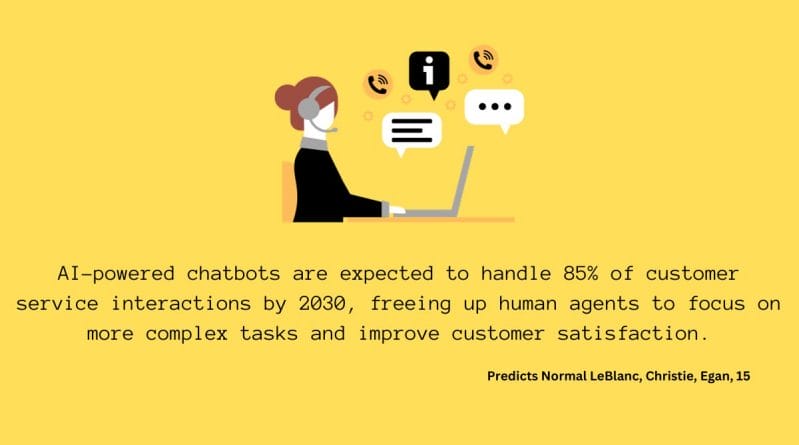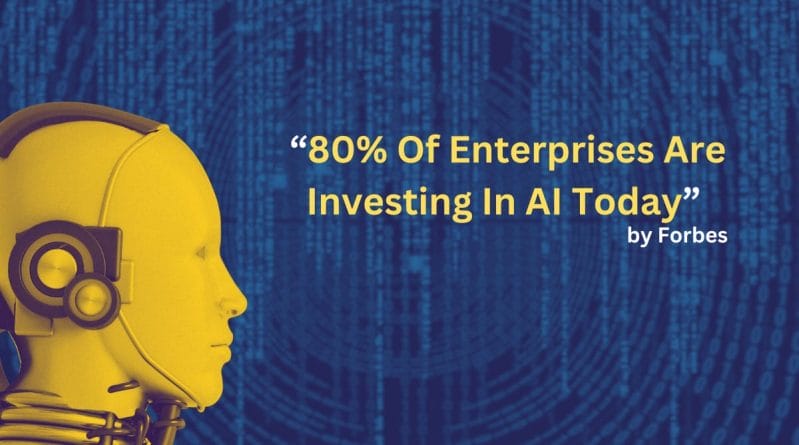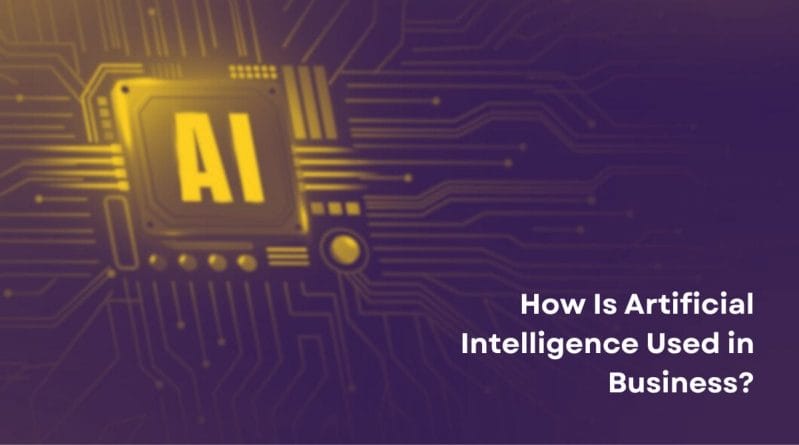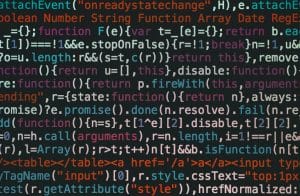AI isn’t just a futuristic dream; it’s a game-changer for businesses today.
Think of it as a super-smart tool that helps businesses do things better and faster. AI is everywhere, enhancing productivity across sectors, from how companies talk to their customers to making smarter money moves.
This article dives into how AI is used in different business areas. We’ll explore how it turbocharges customer relations, powers up finance strategies, boosts marketing, helps make more excellent products, and even keeps an eye out for illegal activities like fraud.
And why should you care about this?
Well, in today’s fast-paced world, using AI is like having a secret weapon! So, let’s dig in and see how AI is shaking things up in the business world, making everything more innovative and efficient.
Applications of Artificial Intelligence in Business
Businesses can use AI in many areas. It’s like having a wizard’s wand to solve problems and make things awesome. It’s not just about being cool; it’s about staying ahead in a world where being intelligent with AI can be the key to success.
AI in Customer Relationship Management (CRM)

Artificial Intelligence (AI) is changing how companies treat their customers. By 2025, AI is expected to help 60% of sales activities, making things easier and smarter.
A highlight of AI is personalization. When companies make things unique for you, 80% of people are likely to buy from them. Take Amazon, for example. It suggests things you might like, and 35% of its sales come from that.
AI also guesses what customers might do in the future using predictive analytics. Companies doing this get 73% more people interested. Salesforce, a big CRM company, uses AI to guess what customers might want, making sales teams work better and earning more money.
And it’s not just about sales. AI helps make customers happy, too. Zendesk uses AI to solve problems faster, making customers happier by 28%. HubSpot uses AI to get 42% more people interested in the stuff they sell.
So, AI isn’t just a fancy word; it’s changing how companies treat customers. It makes things personal, guess what you might do next, and improves shopping and talking with companies.
Generative AI in Finance
Generative AI in finance is like a money wizard changing how investments work and keeping money safe. According to Accenture, 77% of finance big shots think AI will be how banks talk to customers in three years.
AI-powered Investing uses super-smart programs to find the best ways to invest money. Forbes says these AI funds do 8% better than regular ones.
When it comes to Risk Checks and Fix, AI can save banks $447 billion by 2023 by catching bad stuff early. Big names like BlackRock and JP Morgan Chase use AI to make better money choices and stop fraud, making banking safer.
Robo-advisors like Wealthfront handle $25 billion using AI to make money plans young folks love. Generative AI isn’t just a tech upgrade; it’s making money move smarter and keeping our cash safer.
AI in Marketing and Sales
Artificial Intelligence (AI) is like a superhero for marketing and sales, making things more innovative and better.
By using AI, companies can employ:
AI-Powered Targeted Advertising:
AI knows what you want to buy before thinking about it! Around 80% of people love buying from companies that understand them well. Companies like Facebook and Google use AI to show ads that match your interests. This helps companies sell things better and makes customers happier.
Sales Forecasting and Optimization:
AI also helps companies predict what might happen in the future. Businesses using AI for this sell 73% more than others. For example, AI helps companies know what people might buy next, so they prepare and sell things better.
Take Amazon, for instance. They use AI to understand what you might want to buy next and have more than 35% of their sales from that. AI isn’t just good for sales; it also helps companies make wise choices in selling things.
In a nutshell, AI isn’t just a fancy idea in marketing and sales. AI helps companies sell things to people who want them and predicts what might happen next, making the whole buying and selling experience much better for everyone involved.
AI in Product Development and Innovation

Artificial Intelligence (AI) is like a super-creative assistant, helping companies make new and better things.
It achieves two major tasks:
Rapid Prototyping and Design Enhancement:
AI makes it fast and easy to create new stuff. It’s like having a speed button for making things! Companies using AI for this can design and improve things way quicker. For example, AI helps prepare cars and gadgets faster and makes them more relaxed.
AI-driven Product Testing:
AI helps check if new things work well before they’re even made. It’s like having a magic crystal ball that shows if something will be a hit or a miss. Businesses using AI for testing can catch problems early and fix them. This saves time and money.
For instance, companies like Nike use AI to design and test shoes faster and make them better. They can predict what kind of shoes people will love and make them quickly.
So, AI isn’t just about making things; it’s about making them faster, better, and exactly what people want.
In short, AI isn’t just an excellent idea in product making; it’s changing how companies create and improve things. It helps companies design things quickly and ensure they’re fantastic even before they’re made.
AI in Risk Management and Fraud Detection
AI’s role in Risk Management and Fraud Detection is crucial in safeguarding businesses. It’s like having a super-guard that spots trouble before it happens.
AI helps in two main ways:
Spotting Risks Early:
AI keeps an eye on all the business moves and quickly spots anything fishy. It’s estimated that AI can save banks $447 billion by 2023 by catching bad stuff early. For instance, it can detect unusual transactions and prevent fraud, keeping everyone’s money safe.
Fighting Fraud:
AI is a detective looking for clues and patterns that signal fraud. Companies using AI for this see a significant drop in fraudulent activities. Big names like banks and financial institutions rely on AI to protect themselves and their customers from online scams and fraud.
Take PayPal, for example. It uses AI to detect and stop fraudulent activities before they cause harm. This keeps both the company and its users secure.
In short, AI isn’t just a buzzword in risk management and fraud detection; it’s a shield against potential threats. It helps companies stay safe, spot trouble early, and keep everyone’s information secure.
How to Get Started with AI
Starting with AI might seem like stepping into a new world, but it’s easier.
Here’s a simple way to begin:
1. Learn the Basics
Start by understanding what AI is and how it works. There are plenty of free online courses and resources to get you started. Websites like Coursera, Khan Academy, and Codecademy offer beginner-friendly classes.
2. Pick a Focus
AI is vast! Decide what area interests you most, like data analysis, machine learning, or natural language processing. This helps in focusing your learning efforts.
3. Tools and Resource
Many AI tools and software are available. Start with user-friendly ones like TensorFlow, Scikit-learn for machine learning, or Tableau for data visualization.
4. Practice Makes Perfect
The more you practice, the better you get! Start with small projects or challenges to apply what you’ve learned. Websites like Kaggle offer datasets and competitions to test your skills.
5. Join AI Communities
Engage with AI communities and forums like Reddit’s r/artificial intelligence or AI groups on LinkedIn. Learning from others and sharing experiences can be super helpful.
6. Stay Updated
AI is constantly evolving. Keep yourself updated with the latest news, trends, and advancements in AI through blogs, podcasts, or following industry experts on social media.
Remember, starting with AI doesn’t mean mastering it all at once. Take it step by step, explore, and enjoy the learning journey!
Future of Artificial Intelligence in Businesses
The future of Artificial Intelligence (AI) in businesses is like stepping into a sci-fi world, but it’s closer than we think.
Here’s a glimpse of what’s coming:
1. Smarter Decision-Making
AI is getting super bright. It’ll help businesses make quicker and better decisions. By 2030, experts predict AI will boost the global economy by over $15.7 trillion (PwC).
2. More Automation
AI will handle more tasks. Around 85% of customer interactions might be managed by AI, making things faster and more accessible for everyone (Gartner).
3. Personalized Experiences
Companies will use AI to know you better. They’ll offer more personalized products and services based on what you like. By 2025, 80% of companies might use AI to customize customer experiences (Accenture).
4. Better Problem-Solving
AI will be a problem-solving champ. It’ll help solve complex problems faster and find solutions we might still need to look into.
5. AI Everywhere
AI won’t just be for big companies. Even small businesses will use it more. By 2025, 80% of emerging technologies might involve AI (Gartner).
6. Ethical Concerns and Regulations
With all the fantastic stuff AI does, there will be discussions about how to use it right. Governments and companies will work together to ensure AI is used ethically and responsibly.
In a nutshell, the future with AI in businesses is like having a super-smart helper everywhere. It’ll make decisions easier, personalize our experiences, and solve problems we thought were impossible.
Key Takeaways
- AI enhances sales and marketing by understanding customers and targeting ads effectively.
- It speeds up product innovation, smartly tests products, identifies risks early, and fights fraud virtually.
- Starting with AI involves learning basics through free courses, practice, and engaging in AI communities.
- The future impact of AI promises more intelligent decision-making and personalized experiences for customers.
- Overall, AI in businesses improves sales, innovation, and risk management and offers personalized customer interactions.
Looking ahead, AI’s role will only amplify. It’ll redefine strategies and spark innovative approaches. Its impact on decision-making and personalized interactions will continue to shape the future business landscape.
In conclusion, AI is the fuel propelling businesses forward. It’s not just about technology; it’s about making smarter choices, enhancing customer experiences, and driving continuous innovation to shape a brighter future for businesses of all sizes.








